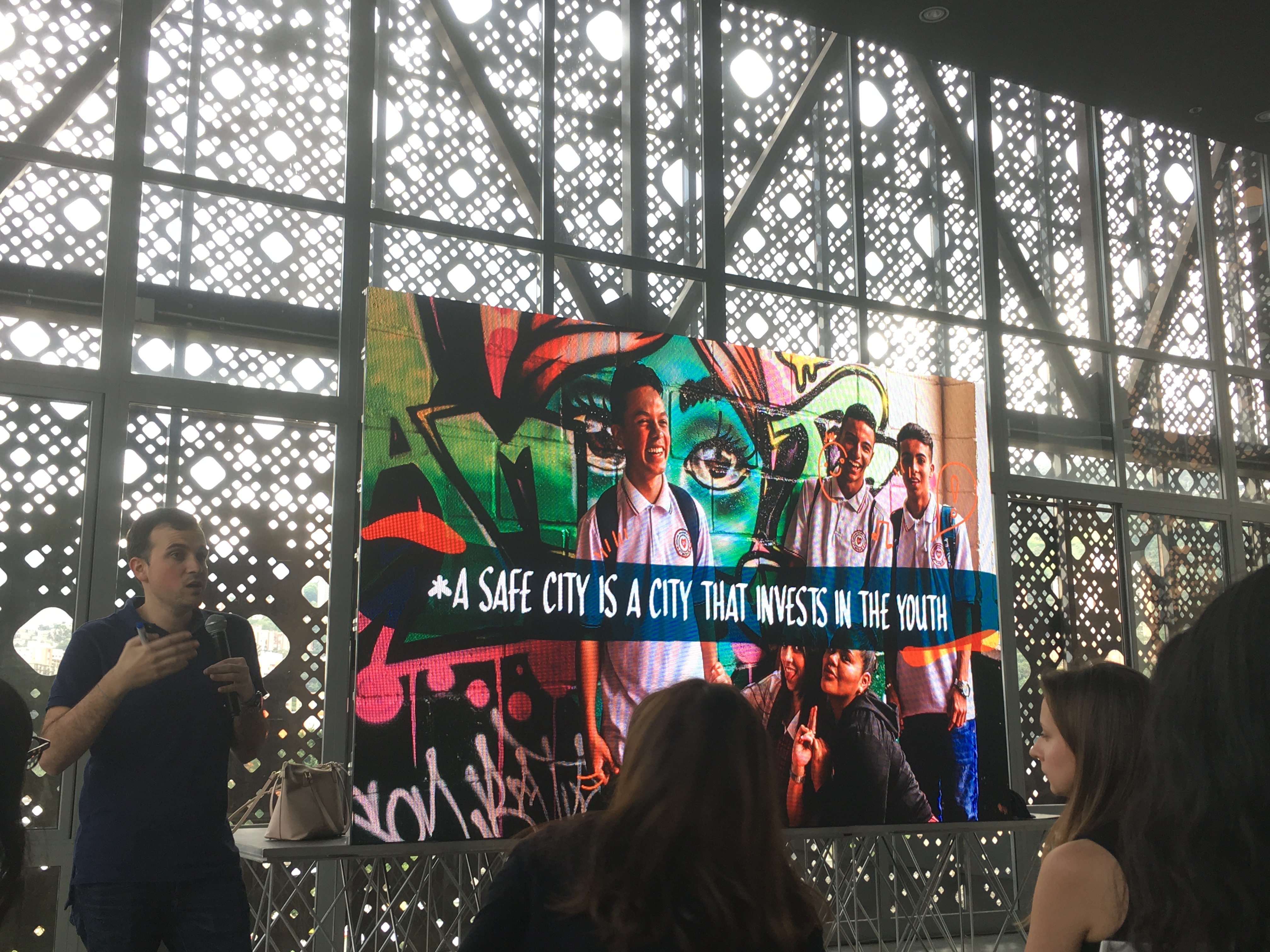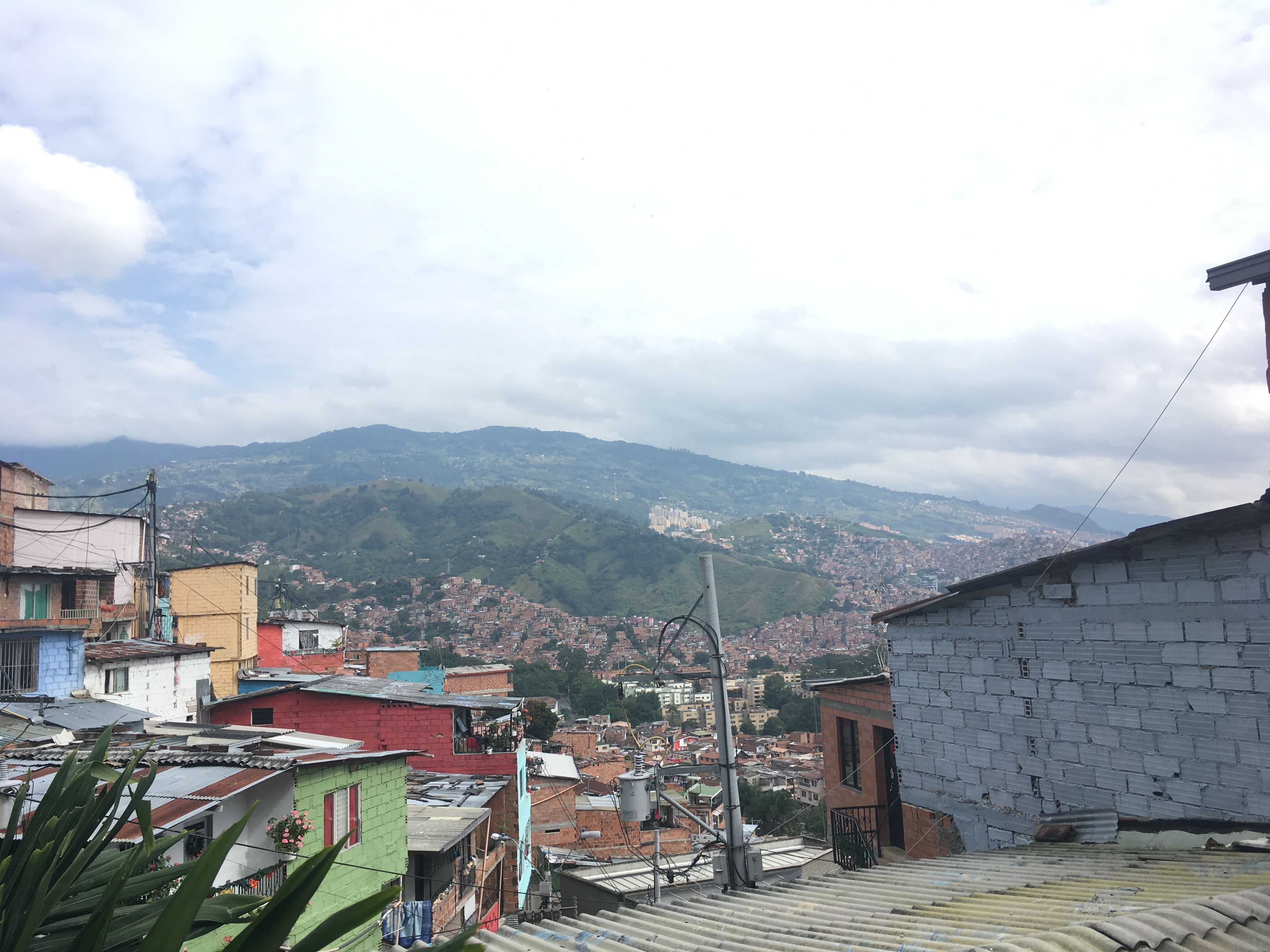by Fanny Glimois, MiM 2019
 Destination: Medellín, Colombia.
Destination: Medellín, Colombia.
Having never been to South America, I could not wait. It was even more mysterious as the Global Immersion Field Trip (GIFT) portfolio had just been completely revisited. For the first time, LBS Masters in Management students were going to Colombia, it was also the first GIFT for our cohort, and so we truly did not know what to expect. Out of six destinations, I had chosen Colombia because I was excited about the theme of Social Impact and Sustainability, and was curious to see what Medellín, famous historically for its drug cartel, had transformed into since the 1990’s.
For our consulting project, my group was assigned the Marina Orth Foundation. This NGO is doing truly wonderful work with local schools in less developed areas outside of the city, focusing on tech, English and leadership skills. We met with their CEO, CFO and English programme director several times, to pinpoint their exact needs. By the end of this project, we were able to recommend several models to find diversified and sustainable funds for their scholarship programme. Hearing the foundation’s representatives thank us for our report, and say that it will be incredibly helpful to them, was truly rewarding.
This trip cannot, however, be summed up solely by our projects. Throughout the week, we met some of the most inspiring speakers I have ever had the chance to hear.
 Sergio Fajardo explained to us how, after a career in mathematics, he became mayor of Medellín in 2004, defeating the two traditional parties. He demonstrated the importance of communication and of education, to empower every citizen and to reconstruct the city. We were able to witness the fruit of his political agenda when visiting Comuna 13, a neighbourhood known as the most dangerous in the world in the 90’s, and where nowadays unaccompanied yet care-free children in football shirts walk down the outdoor escalators. To put this evolution in perspective, whilst the city in the 90’s had over 300 homicides per 100,000 residents, that number was only 20 in 2015.
Sergio Fajardo explained to us how, after a career in mathematics, he became mayor of Medellín in 2004, defeating the two traditional parties. He demonstrated the importance of communication and of education, to empower every citizen and to reconstruct the city. We were able to witness the fruit of his political agenda when visiting Comuna 13, a neighbourhood known as the most dangerous in the world in the 90’s, and where nowadays unaccompanied yet care-free children in football shirts walk down the outdoor escalators. To put this evolution in perspective, whilst the city in the 90’s had over 300 homicides per 100,000 residents, that number was only 20 in 2015.
Juan Manuel Lopera, founder of Aulas Amigas, shared with us his story, from growing up in one of the most violent neighbourhoods and losing several family members, to creating his first company at 16 and selling it at 19, and now exporting his technology, the TOMi, to bring tech-connected learning to disadvantaged children in several continents.
Finally, Alejandro Bedout, Secretary of Youth in Medellín and only Secretary of Youth in Colombia, illustrated how the city invests in its younger generation, not only to tackle gangs at their source, but also because it believes in their talent and ambition.
Some of us also had the opportunity to visit Ruta N, the Business and Innovation Centre of Medellín. This organisation has been consistently supporting start-ups to ensure that they are able to pursue social innovation in Colombia. In the meantime, others went to La 25 (a not-for-profit organisation working with teenage football players from underprivileged areas), Comfama (the first social compensation fund in Colombia) or Taurus Capital (an alternative investment firm where José Parra, MiF full-time 2004 alumnus and the first LBS alumnus from Medellín, is partner).
I was not disappointed by the city Medellín – in fact I was blown away, and for this opportunity I would like to thank Fiona Garcia (from the Global Experience team) who organised this trip with the help of the local team in Colombia and of José Parra, as well as Nalisha Patel (MiM Programme Director) who led the redesigning of the GIFT portfolio, and Isabel Fernandez-Mateo (Professor of Strategy and Entrepreneurship) for her valuable insights during our consulting project.
Medellín is a beautiful and heart-warming place. There was a constant in every individual we met, whether it was one of the speakers, someone from the organisations, or even strangers on the street. They all had an incredible sense of belonging, of pride and love for their city. No one that “makes it” leaves the city behind. They all stay or come back to help further develop the city with innovation and education. This may be because the past of Medellín is still fresh in the minds of the Antioqueños. Nonetheless, I came back from this GIFT inspired by their commitment, and with the belief that it is possible to mix business success and social benefit.
